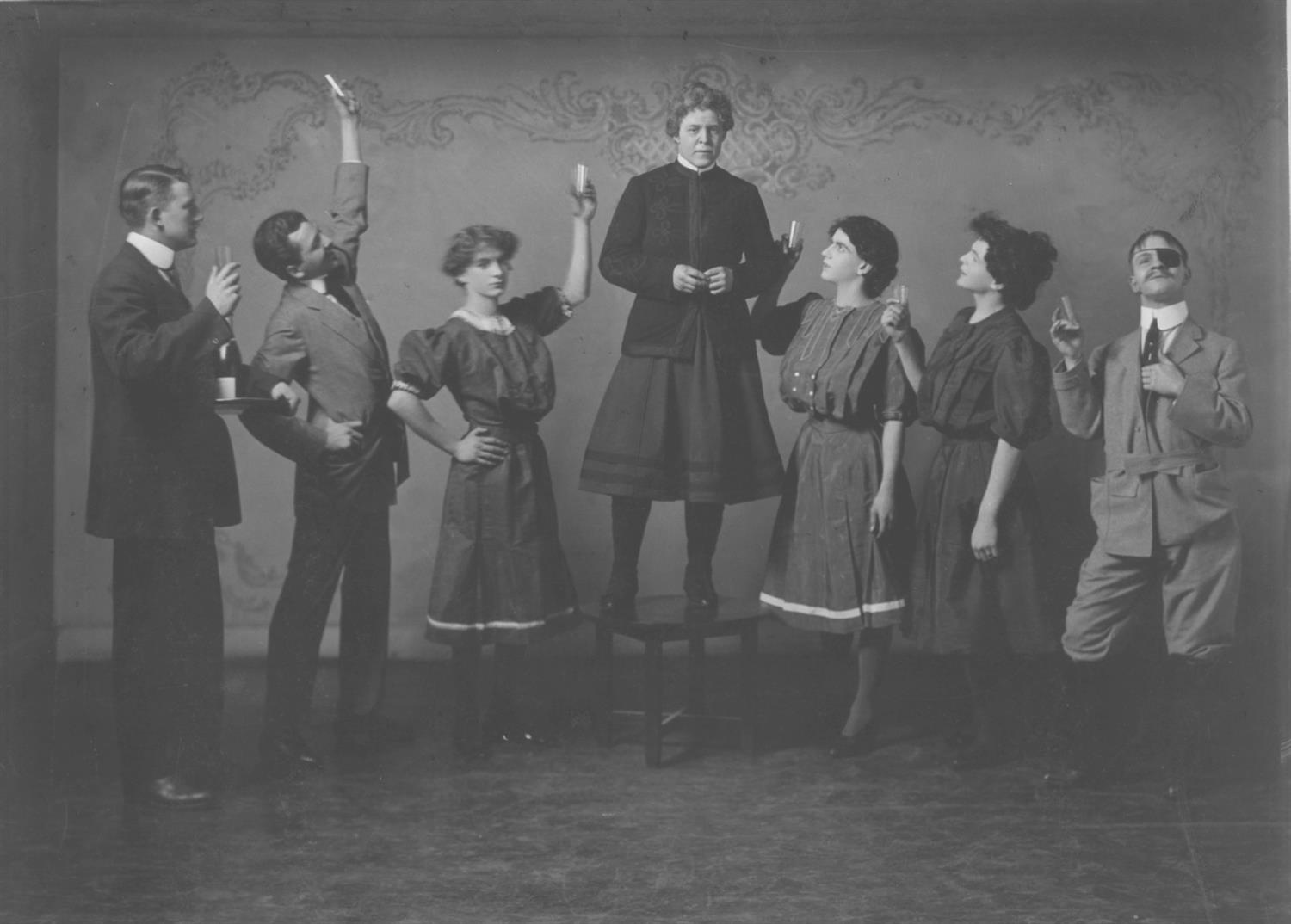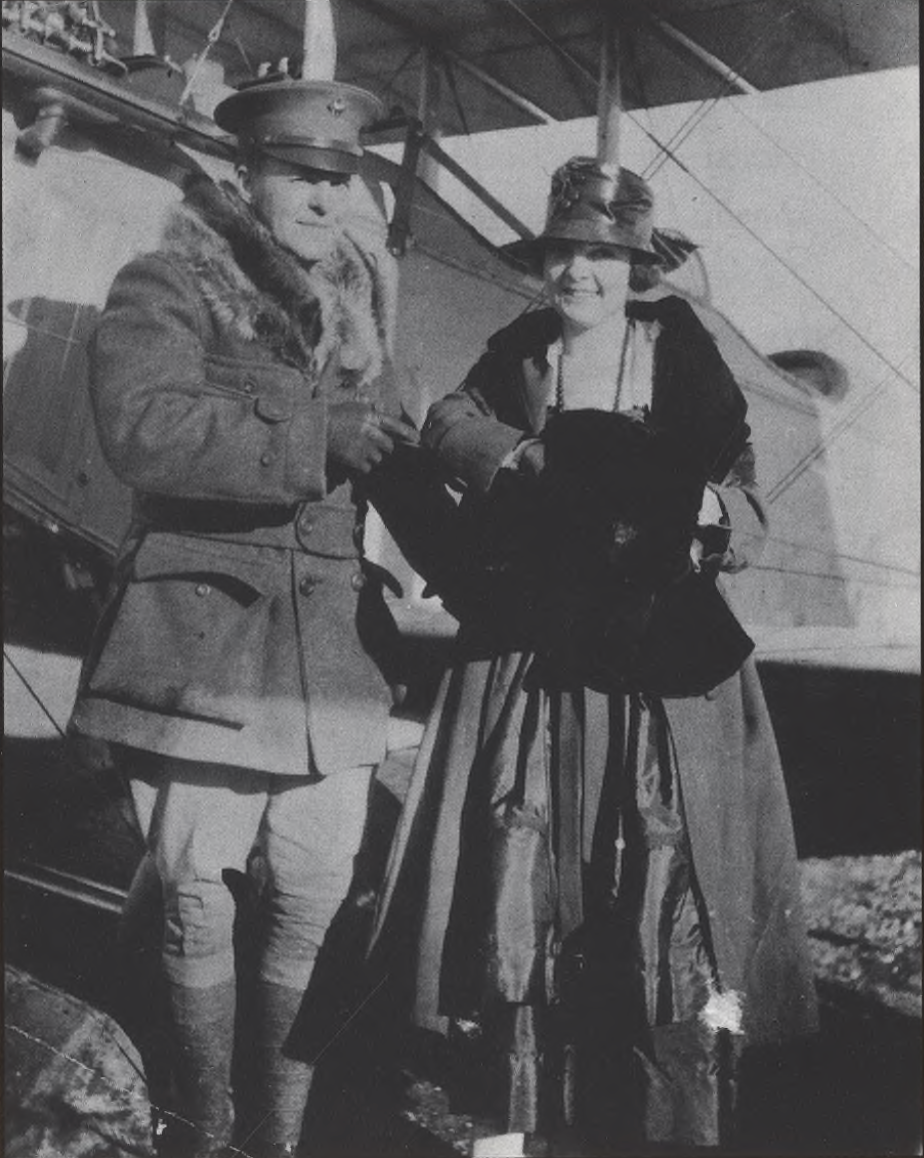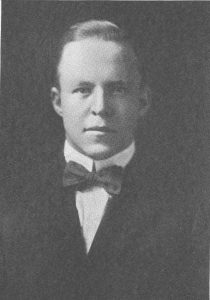(Dec. 28, 1886-ca. July 8, 1918). Maxwell Oswald Parry was born in Rushville, Indiana, the oldest son of and Hessie Maxwell Parry. Parry’s father, a wealthy Indianapolis buggy and automobile manufacturer (see ), became one of the nation’s most important industrialists. Serving as president of the National Association of Manufacturers at the beginning of the 20th century, he led the fight against unions and for the open shop. The Parry family lived in Indianapolis on their 100-acre estate, .
From an early age, Parry displayed an interest in the arts, especially drama. As a young boy, he staged theatrical productions enlisting his six siblings and friends as actors.
Parry’s early education occurred in the (IPS) system. He later attended Culver Military Academy, a college preparatory school for boys located on the north shore of Lake Maxinkuckee in Marshall County, Indiana. In 1902, he left for France to attend the American College at Strasbourg, located in Alsace on the French border with Germany. For one year, Parry became immersed in the study of the French and German languages at the school, which former IPS superintendent David K. Goss operated.

Parry returned to the U.S. and finished his education at Hotchkiss School, an elite private boarding school in Connecticut, in 1904. The following year, he entered Yale University and joined the Yale Dramatic Association. He was elected class orator and president of the Yale Dramatic Association his senior year. He declined an offer to work with a Broadway troupe upon graduation in 1909, instead choosing to enroll in a playwriting course at Harvard University. He graduated with an MA in 1912.
Following his graduation from Harvard, Parry joined the Washington Square Players, an influential amateur theater group established in Greenwich Village in Manhattan in 1913. It was part of the little theater movement that spread across the country in the years prior to World War I. This movement envisioned the formation of small volunteer-based acting companies intended not only for self-expression but also to reshape the boundaries of American theater. Little theaters invited anyone capable of writing, acting, producing, designing and executing scenery and costumes, and theatrical business management to participate as volunteers.
Parry brought this idea back to Indianapolis, where he founded the Little Theatre Society of Indiana, along with Indianapolis novelist and other community leaders. In the summer of 1914, Parry became the interim chair and spokesperson for the fledgling Indianapolis organization. Now named the , it is the longest continuously operating community theater in the United States.
The Indiana Society held its first season in 1915, and Parry contributed a play titled Dad: A Comedy of Hoosier Home Life and played “Dad.” That same year, Parry also experienced success as a playwright in New York City, where the American Academy of Dramatic Arts performed his play, The Lie Beautiful, a comedy.

Just as Parry’s career as a playwright began to take off, the U.S. entered World War I. He volunteered for military service, although at age 30 he was considered too old for combat. The Aviation Service, Signal Enlisted Reserve Corp accepted him, and he reported to duty on August 27, 1917. He then went through flight training in Canada, after which he was commissioned as a second lieutenant in the United States Army. Assigned to the 147th Aerial Squadron, he arrived in France in late March 1918.
Parry joined a group of elite pilots engaged in the 147th Aerial Squadron. Squadrons 27, 94, and 95 comprised the elite First Pursuit Group that included Quentin Roosevelt, the youngest son of President Theodore Roosevelt, (95th), and Eddie Rickenbacker, who later purchased the from , (94th).
On July 2, 1918, the 147th sent 7 planes over Chateau-Thierry when they engaged 12 of Baron Manfred von Richthofen’s (The Red Baron’s) famous “flying circus.” In the ensuing battle, Parry downed his first German airplane. Richthofen lost six of his men. A writer for the came to France to write about the battle and photograph the pilots. The photo of Parry that appeared in the story was the last one ever taken of him.
On July 8, 1918, Parry led the 147th squadron deep into enemy territory upon discovering 13 German aircraft. Low on fuel, all the Americans retreated except Parry. He dove on the German planes, was shot down, and killed in action. The Parry family held onto the hope that he was still alive in a prison camp until his grave was found at the Oise-Aisne American Cemetery, a German military cemetery in France, in late March 1919.
Parry’s musical pantomime, Stingy, about a miser, debuted posthumously at the Judy Theatre on Broadway in New York City on January 15, 1919. It had a short run, closing on March 22, 1919.
Parry received two medals posthumously, the French Croix de Guerre and the American Distinguished Service Cross. Confusion in War Department records resulted in the latter medal never being bestowed to Parry. Richard D. Feldman, a physician and commissioner at the Indiana State Department of Health, embarked on a mission to find Parry’s military records to right this wrong. He succeeded, and in June 1997, the Army Decorations Board, along with Feldman and then-Congressperson , presented the U.S. military’s 3rd highest honor, the Silver Star, to Parry’s 87-year-old niece Priscilla Rubincam.

Help improve this entry
Contribute information, offer corrections, suggest images.
You can also recommend new entries related to this topic.





